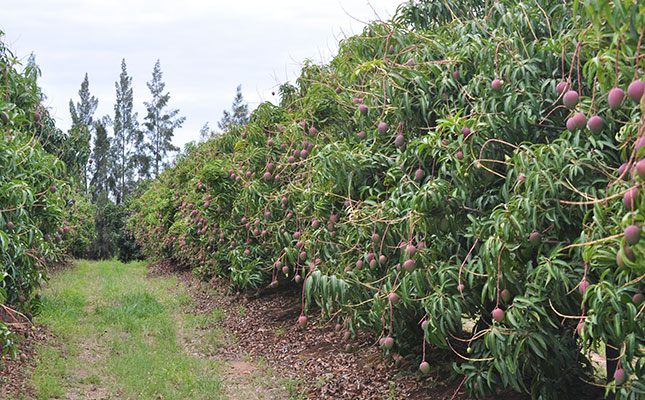
Photo: FW Archive
The mango harvest is in full swing, and an increase in volume on the market has led to pressure on prices.
Johann du Preez, operational manager at Bavaria Fruit Estate, said they had started harvesting last week and that feedback from the marketplace was that the season had begun about a week earlier than last year, with bigger volumes already on the market.
“[While] the volumes [on the market] aren’t that much higher [than last year], the market is sluggish, with everybody reporting that buyers are opting for volume-for-money products.”
While the harvest this season was slightly higher than the 70 000t produced in the 2019/2020 season, this was still below the five-year average of 84 000t, as previously reported by Farmer’s Weekly.
He added that direct feedback from sellers was that shoppers were staying home due to the COVID-19 pandemic and not venturing out as often as usual to purchase fresh produce.
“This is obviously not good for farmers, since peak season is coming, and mangoes have to be picked when they’re ready.”
Du Preez said that farmers would have to juggle supply between export, fresh sales, factories, and direct sales to hawkers, while problems with fruit transport and shipping schedules made exports a challenge, too.
“The overseas situation is not favourable, with the strengthening of the rand, oversupply of Brazilian fruit on the market, and the COVID-19 measures in the UK dampening the sales of fresh and fresh-cut [fruit salad] sales,” said Du Preez.
According to Derek Donkin, CEO of the South African Subtropical Growers’ Association, the current market price for a 4kg carton of mangoes was between R38 and R40, and around R20 for a 2kg carton.
Donkin added that lower prices meant lower profits for producers.
“As with any product, there is a threshold beyond which sales are no longer profitable. This will differ from grower to grower depending on their yields and production costs.”
He said that increased supply had brought on the current lower prices.











